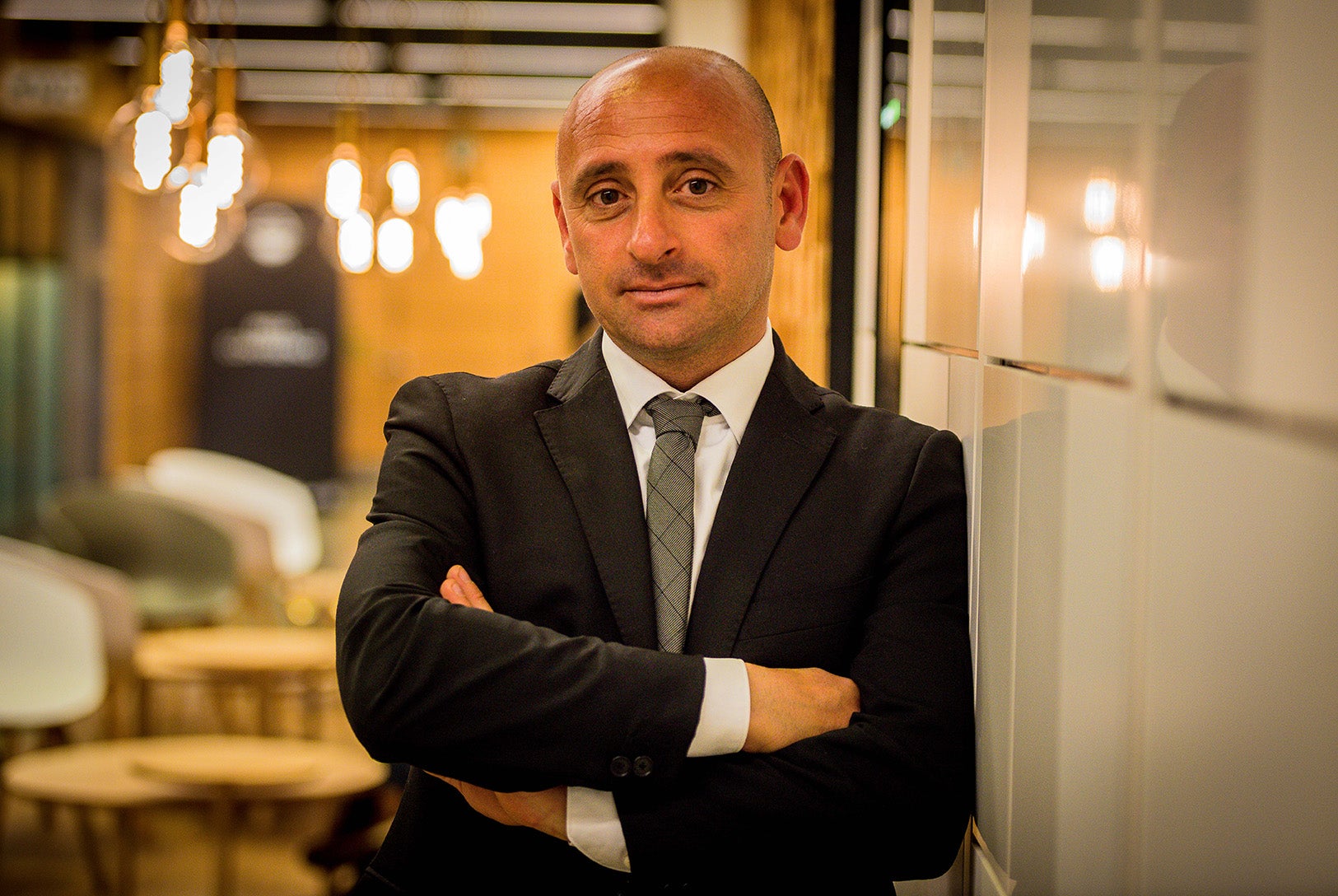A CHAT WITH PAOLO BETTINI

From 1997 until 2008 Italy’s Paolo Bettini was quite simply one of the greatest one-day racers in the sport, winning Milan–San Remo, Liège–Bastogne–Liège and the Tour of Lombardy, not to mention the road-race titles at the world championships and Olympic Games. And virtually all of his victories came under the colors of Quick-Step Floors—first as a secondary sponsor to the mighty Mapei squad and then as the title sponsor. We caught up with the amiable Italian at the 20th anniversary celebration of Quick-Step’s sponsorship commitment to cycling. The 44-year-old looked back over his illustrious career, but also spoke to how the sport has evolved since he retired a decade ago.
Words: James Startt
PELOTON: Paolo, you spent nearly your entire career working with Patrick Lefevere and the Quickstep team, one of the absolute winningest managers in the sport. What is his secret?
Bettini: Well, I think that winning is just part of the DNA of this team, especially when it comes to the classics. Obviously, when it comes to the Tour of Flanders or Paris–Roubaix, they are the team to beat but they also go into the Ardennes with plans to win. They go into every race with a plan. Patrick is an amazing manager. He has a way of dealing with the many challenges and problems that arise within a team. One of his outstanding qualities is that he is always calm, even in tense moments. And that just filters down to the team. A tranquil manager makes for a tranquil team.
PELOTON: You were the DS for the Italian national team and you came close to putting together your own team with Formula 1 driver Fernando Alonso just a few years ago. Do you still dream of having your own team one day?
Bettini: Not at this moment. I spent a full year working towards a new pro team but it didn’t work out. So right now I’ve taken a step back.
PELOTON: Well, it seems like you are still managing to ride a fair amount.
Bettini: Well, I don’t know! I’ve gone from riding 35,000 kilometers per year to 5,000, but I still have a lot of fun cycling. In addition, I spend a lot of time skiing, which I just love. But I still follow cycling closely and watch as many races as possible.
PELOTON: When you look at the sport today do you think that it has changed a lot, or not really that much?
Bettini: Cycling is always changing. Between 1980 and 2000 there was a huge change, just like between 2000 and 2010 or between 2010 and now. Team structures are changing. Training is constantly changing and becoming more scientific. And the way that races are being organized is changing. Look at the Tour of Flanders. It is fantastic what they have done with it. It’s the first race that succeeded in transforming the event and essentially creating a stadium around it with the final circuits. What they have done in Flanders is nothing short of revolutionary and it is possible, I think, for a lot of other races to follow in their footsteps. Today only Flanders has succeeded in doing that, but others should follow.
PELOTON: Well, you can’t really do that with Paris–Roubaix or Milan–San Remo. I mean the whole magic of La Primavera is that the riders still make this epic journey across Italy from Milan to San Remo….
Bettini: That’s true, but we also have races like the Tour of Lombardy or Strade Bianche where it would be possible to finish with a circuit.
PELOTON: Have racing tactics changed as well with the increase in science or the use of radios?
Bettini: Training may be more scientific, but the sport still depends on the riders to add a touch of fantasy. I started in 1997 without radios and saw the sport evolve as they entered into the sport. We always had a game plan going into the race and we relied a lot on race radios for information, but there was always a part of the racing tactics that relied on the fantasy of the riders. There is still room for imagination in the sport. In Italy we often say that a rider has to have courage to tell a DS over the radio: “No, I want this or I am going to do that.” A radio is there to help, but it can’t become a crutch. A sports director can’t see everything that a rider can see in every instant of the racing. Look at what Philippe Gilbert did last year in Flanders, or what Nibali did this year in San Remo. In both cases nobody thought that it was possible, but they took their chances and won.